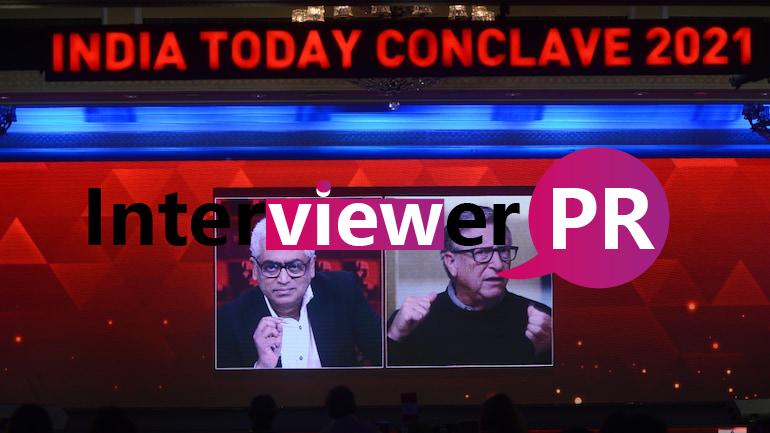At the India Today Conclave 2021, Bill Gates said India needs innovations and more awareness on climate change. The co-chair, Bill & Melinda Gates Foundation, was speaking at a session titled ‘Track change: Why humans must race to zero’. Excerpts:
Do you see your ability to foresee things as a gift or a challenge?
Well, certainly, a gift. I feel very lucky I get to work on innovative new things. Also, when you’re as successful as I am, you have a responsibility to use that to save lives as much as possible and drive innovations to solve the big problems, whether it’s making us ready for the next pandemic or avoiding climate change.
What made you engage with the issue of climate change?
I like reading about science and understanding weather, but it was my work in Africa for the Gates Foundation, where we work on nutrition and health for the entire world [that pushed me to it]. We were seeing that the climate was already making farming near the equator far more difficult. I decided I better learn about that. And spent 10 years, starting around 2000, learning about that; also gave a TED talk in 2010 where I warned that it’s a huge problem that we’re not doing the right things for.
Has the thinking evolved, deepened, changed, in terms of scale, immediacy, urgency?
Yes. The awareness that we’ve got a huge problem that’ll get worse over time is much higher today. A big milestone was in 2015, the Paris climate talks, where I, Prime Minister Modi, President Obama and 30 others put the idea of innovation on the agenda. It was called Mission Innovation. The idea was to get the R&D budgets of all these countries to go up, and I committed to doing what’s called breakthrough energy, where we would take the ideas and make sure that great companies were funded to turn those ideas into products to avoid climate change. So, we have so much more to do, this is such a hard problem, but we’re better off. Governments are thinking about this. We’ve come a long way since 2015.
How do you tell people that it’s not about tomorrow, this is the crisis of today?
There are no quick solutions like inventing a vaccine. The pandemic, of course, has been an incredible tragedy, but we will see the end of it because of the vaccines. Climate change, you have to work to stop emissions now to avoid disaster later because the scale is so big. Particularly for countries near the equator, including India, the effects will be very dramatic. The ability to work outside in summer, the crop productivity, the weather system — it will be dramatically different if we don’t act in a huge way.
You talk about zero emissions, 70% de-carbonisation. That sounds daunting. How do you create an impact on the scale?
Zeroes are a very tough call because it means we can’t just take passenger cars — we have to do planes, trains and trucks. We can’t just do industry, steel and cement. Can’t just do agriculture, heating buildings or making electricity. Also we have to do every one of those areas. And today, the cost of green products to make steel or cement with no emissions is over double the current price. So, the cost to go green is simply unacceptable even for the rich countries, not to mention middle-income countries like India. So, the path to salvation includes huge innovations like clean hydrogen or scaling up electric cars and trucks to a super high level to take over the way we presently do every one of those activities.


